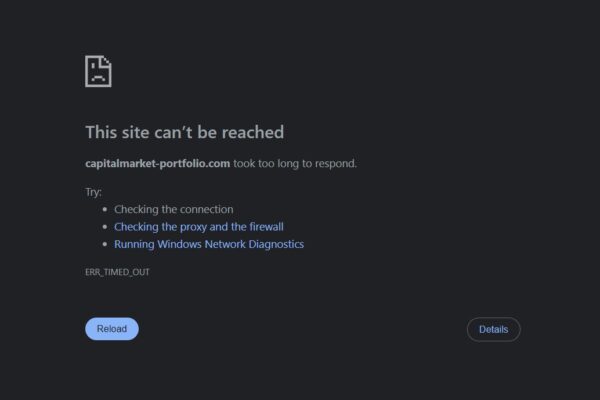WiseWealth.ai Scam Review -A Broker Outsmarting Its Users
It Started With a Promise of Intelligence
The first time most people encounter WiseWealth.ai, it doesn’t feel like a scam. It feels like progress.
Artificial intelligence, automated investing, data-driven decision-making — everything about the site screams innovation.
Their slogan — “Let your money think for you” — is catchy, persuasive, and dangerously comforting.
In a world obsessed with AI and passive income, WiseWealth.ai seemed like the perfect hybrid of both: cutting-edge tech with old-school wealth-building reliability.
That’s exactly how so many people got pulled in — not because they were reckless, but because it sounded believable.
But as we’ll see, WiseWealth.ai’s brilliance wasn’t in its technology — it was in how it used the illusion of technology to manipulate trust.
The Setup: A Futuristic Façade
When you land on WiseWealth.ai’s homepage, the presentation is stunning.
Glowing blue visuals. Futuristic charts. Buzzwords like “machine learning,” “predictive analytics,” and “AI-enhanced trading precision.”
They don’t say they might make you rich. They say their algorithms will.
The onboarding process feels like joining an elite club of intelligent investors. You’re greeted with a polished interface and a welcome message that reads something like:
“Welcome to the future of wealth creation. Sit back while our AI optimizes your financial growth.”
Who wouldn’t want that?
But like many online “AI investment” schemes, the intelligence behind WiseWealth.ai wasn’t artificial — it was entirely imaginary.
Act One: The Pitch That Feels Personalized
Within hours of signing up, users get contacted — usually by a “financial advisor” with a name like Daniel Brooks or Emily Foster. They sound confident, professional, and strangely familiar.
Their message? You’re lucky. You’ve joined at the right time.
“Our algorithm just hit a 97% accuracy rate in crypto forecasts. Early clients are seeing double-digit returns in days.”
It sounds specific, but it’s not. It’s the same script sent to hundreds of leads every day.
The advisor reassures you:
“You don’t need experience. Just start with a small test — maybe $250 — and let our system show you what it can do.”
That small deposit is the first step into their carefully choreographed illusion.
Act Two: Watching the Numbers Rise
Once you deposit, the platform lights up with data. You see trades happening in real-time, green numbers ticking up, and a glowing chart of your “portfolio growth.”
In 24 hours, your $250 turns into $310.
Then $410. Then $500.
Your “advisor” calls again, congratulating you.
“Looks like your portfolio is responding beautifully. Imagine what would happen if you invested $2,000 instead.”
The logic feels sound — you’ve seen the profits.
But here’s the problem: those profits don’t exist.
Every number you see is fake. The trading activity is simulated — a clever animation designed to mimic real exchange data.
You’re not watching your money grow.
You’re watching the performance of trust engineering — a digital illusion that makes you believe in results that were never real.
Act Three: The Gentle Pressure
When users begin to trust the system, the persuasion intensifies.
The “advisor” begins suggesting upgrades:
-
“Premium AI Access” (minimum deposit: $5,000)
-
“Smart Portfolio Tier” (minimum deposit: $10,000)
-
“Quantum AI Trading” (by invitation only — and at least $25,000)
Each tier promises better algorithms, faster performance, and higher returns.
The advisor phrases it as a chance — not a demand.
“You’ve already proven you’re great at spotting opportunities. This next step could really accelerate your journey.”
It sounds like encouragement. In reality, it’s calculated manipulation — the kind used by high-end scam operations that blend psychology, tech jargon, and false social proof to escalate deposits.
The Red Flags Most People Missed
By the time investors realized something was wrong, it was usually too late.
The signs were there — just cleverly disguised:
-
No verifiable AI system
There’s no proof WiseWealth.ai’s algorithm even exists. There are no academic papers, developer names, or technical explanations beyond vague buzzwords. -
Anonymous ownership
The “About” page lists no founders or team members. The supposed CEO’s name, when Googled, appears nowhere outside the site itself. -
No regulation or license
Real AI investment platforms must comply with financial laws and disclose licenses. WiseWealth.ai’s legal section contains only generic text about “compliance” — with no regulatory ID. -
Crypto-only deposits
Payments are typically accepted only through cryptocurrency. Once sent, there’s no trace, no refund, and no accountability. -
Withdrawal delays
Early users could withdraw small test amounts — until the larger requests started coming. Then, suddenly, “technical errors” appeared, followed by “security reviews,” and finally, silence.
Each red flag alone might seem manageable. Together, they form a clear pattern — one used by dozens of AI-branded investment scams in the past three years.
Act Four: The Vanishing Act
When victims started complaining about delays, WiseWealth.ai’s tone changed.
Customer support became cold and formulaic.
Instead of reassurance, users received automated responses:
“Your funds are under system review.”
“Our AI protocol is recalibrating; withdrawals are temporarily disabled.”
And then, one morning, the site stopped loading.
A blank screen. Domain unavailable.
For many, it was a gut punch — not just losing money, but losing the illusion of control.
Some even received follow-up emails weeks later — from “recovery consultants” claiming they could help retrieve lost funds for a small processing fee.
Different name, same scammers, same network.
The Pattern: AI as the New Scam Language
WiseWealth.ai isn’t unique — it’s part of a modern scam trend that merges financial deception with tech fascination.
Once upon a time, scammers used the word “forex.” Then it was “crypto.” Now it’s “AI.”
The formula is the same:
-
Promise automation.
-
Claim intelligence.
-
Deliver nothing.
They understand that AI, for most people, feels mysterious — powerful but hard to verify. That uncertainty becomes their weapon.
WiseWealth.ai used it perfectly: enough technical buzzwords to sound advanced, but not enough detail for anyone to challenge it.
The Emotional Toll: More Than Just Money
The damage these schemes cause goes far beyond financial loss.
Victims often describe feeling ashamed — as if being fooled means being foolish.
But that’s the greatest misconception.
Scams like WiseWealth.ai are designed to bypass logic. They don’t target ignorance; they target emotion.
One victim shared:
“I wasn’t greedy. I was tired. I wanted my money to work for me for once. And they made me feel like I’d finally found a smarter way.”
That’s what makes WiseWealth.ai’s manipulation so effective — it doesn’t sell you wealth. It sells you relief.
Behind the Curtain: The People Running It
While WiseWealth.ai’s operators hide behind VPNs and privacy domains, digital traces show that the site shares infrastructure with other fraudulent platforms previously exposed under different names — all following the same pattern:
-
Identical dashboard design
-
Copy-paste legal policies
-
The same fake testimonials
-
Similar “advisor” scripts used in voice recordings
These recycled systems suggest a centralized scam ring operating multiple “AI trading” sites simultaneously, each under a new brand that lasts a few months before disappearing.
Why It Works: The Psychology of Intelligent Deception
The scam succeeds not because it’s high-tech, but because it feels inevitable.
People want to believe AI can outperform humans. They want to believe in efficiency, automation, and simplicity.
WiseWealth.ai exploited that belief with surgical precision.
-
Authority Bias: “AI” implies expertise beyond human bias.
-
Scarcity Bias: “Limited access” creates urgency.
-
FOMO: “Early adopters” get richer first.
-
Trust Transfer: Professional design and realistic dashboards mimic legitimate fintech platforms.
By blending emotional persuasion with technological credibility, WiseWealth.ai made deception feel like innovation.
The Broader Impact on Real Fintech Innovation
Every fraudulent platform like WiseWealth.ai damages public trust in legitimate fintech startups using real AI for predictive trading or financial planning.
When these scams collapse, investors become skeptical of everything — even genuine innovation.
That’s why experts often refer to scams like WiseWealth.ai as “reputational parasites.” They thrive on the credibility of the technology they imitate.
The Final Lesson: Intelligence Isn’t Always Artificial
If there’s one takeaway from WiseWealth.ai, it’s this: intelligence in finance should always be verifiable.
Real AI systems in trading are backed by data science teams, research papers, and third-party audits. They don’t hide behind anonymous domains or crypto wallets.
They don’t need fake dashboards to prove performance — because real performance speaks for itself.
WiseWealth.ai sold a fantasy of effortless wealth. And for a time, it looked real enough to believe.
But in the end, its smartest feature wasn’t its algorithm — it was its ability to make people believe one existed.
Closing Thoughts
The story of WiseWealth.ai isn’t just about one platform; it’s about a modern kind of deception — one that adapts as fast as technology does.
Every scam like this becomes a mirror reflecting our hopes, fears, and desire for control in a chaotic financial world.
And that’s the cruel irony: the very intelligence they promised us was never artificial — it was ours, just redirected against us.
Report WiseWealth.ai Scam and Recover Your Funds
If you have lost money to WiseWealth.ai, it’s important to take action immediately. Report the scam to Jayen-consulting.com, a trusted platform that assists victims in recovering their stolen funds. The sooner you act, the better your chances of reclaiming your money and holding these fraudsters accountable.
Scam brokers like WiseWealth.ai continue to target unsuspecting investors. Stay informed, avoid unregulated platforms, and report scams to protect yourself and others from financial fraud.
Stay smart. Stay safe






